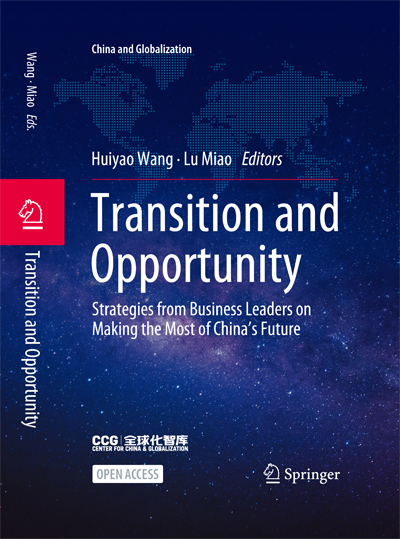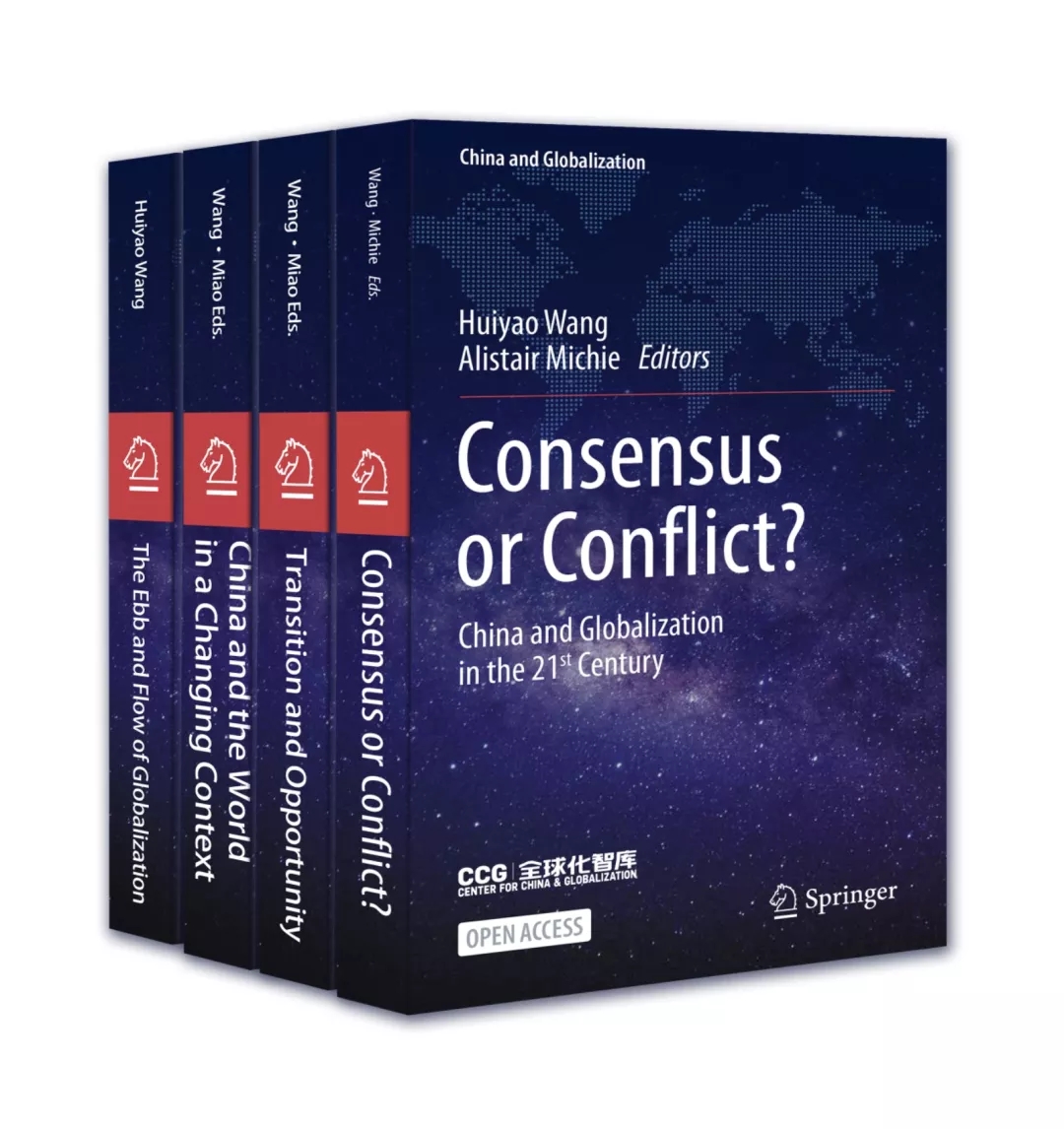President and CEO of Michelin China: Being Chinese in China to Ensure a Win–Win Solution: Michelin’s Goals for Development in China
“Michelin’s success in globalization comes in part from being “French in France, Brazilian in Brazil and Chinese in China”, taking advantage of multi-party participation to achieve win–win solutions. Michelin is focusing on three areas in its expansion in China—sustainability in all areas, innovation-driven development, and expansion of domestic demand. Michelin’s core criteria—the well-being and development of people, the continuous growth of profits, and a positive contribution to the planet—are also in line with China’s goals.”
——Kamran Vossoughia, President & CEO, Michelin China.
Édouard Michelin, one of Michelin’s founders, boldly promoted Marius Mignol, an ordinary worker, who later invented the radial tire, triggering a revolution in the automobile tire industry. Édouard firmly believed that tapping the potential of the individual was the best way to increase the value of the group, which he likened to breaking through rocks to find the diamonds hidden inside. These unique practices and philosophical wisdom have continually guided Michelin through its 130-year history, resulting in continuous victories. Another Michelin saying, “We are French in France, Brazilian in Brazil and Chinese in China”, is also one of the factors that has contributed to the Michelin Group’s success in “globalization”. This idea aptly addresses the following question: How do you perceive the development of multinational companies in China today? A natural response would be that by getting to know and understand well China, you will be able to find the best fit that can benefit your company.
For more than 30 years, Michelin has witnessed China’s economic boom during the Reform and Opening-up period that began in 1978. The release of the 14th Five-Year Plan (2021–2025) for National Economic and Social Development and the Long-Range Objectives Through the Year 2035 by the Chinese government is very exciting for multinational companies seeking longer-term growth in China.
Only by seizing the opportunities and promoting multi-party participation can these companies work with China and the world to achieve win–win solutions.
1 Green China: Sustainability in All Areas
As the world’s second-largest economy, it is important to note that China has begun promoting a comprehensive green revolution both in its economy and society in order to achieve carbon neutrality by 2060. According to the recently released 14th Five-Year Plan, China will implement a series of ambitious and proactive low-carbon development plans. The core strategy behind China’s goal to make green transformation a national policy is sustainable development. As the world watches with admiration China’s efforts to contain the COVID-19 pandemic and restore economic growth, I believe China’s leadership in green transformation will only grow more significant. At the same time, I also believe that global multinational companies will be key players in achieving this green transformation. With their talent pools, financial resources, R&D capabilities, and global influence, multinational companies’ efforts in enhancing China’s green transformation and promoting China’s sustain- able development will also benefit them by creating a larger stage for their own development.
For instance, Michelin firmly believes that sustainability is the future and considers the balance between People, Profit, and the Planet to be a central criterion for all decisions. This strategic vision fits perfectly with the idea of sustainable development in China’s 14th Five-Year Plan, which provides an opportunity for Michelin China. The question then becomes, how can we leverage China’s sustainable development to synergize the company’s own development? We decided to use the idea of sustainable, high-quality development as the foundation of Michelin’s China business, with the goal of fully participating in and deeply integrating with China’s green transformation.
For conventional services, such as our well-known automobile tire business, Michelin is committed to decarbonization and environmental protection throughout the product life cycle (PLC). In product development, Michelin is committed to the research and development of environmentally-friendly materials and will achieve 100% sustainably sourced tire materials by 2050 through the utilization of renew- able, recyclable, and ecological materials. In their application, Michelin tires are already uniquely formulated to reduce vehicular energy consumption. As for waste disposal, Michelin continues to promote used tire recycling projects around the world. Finally, another popular example of our commitment to sustainability is the popular Michelin Travel Partner Green Star award, which was awarded in China for the first time in 2020 in order to recognize restaurants that promote sustainable dining.
In developing new business, Michelin has also shown its commitment to investing in new and renewable energy projects. For example, Michelin has been committed to hydrogen energy transportation for more than 15 years. We are accelerating our research and development process as well as our investment in Chinese businesses that are engaged in promoting zero-emission mobility. The idea of sustainable development is deeply rooted in all areas of our businesses. Michelin has pledged to reduce carbon dioxide emissions at all its production facilities by 50% by 2030 compared with 2010 and to achieve carbon neutrality by 2050.
The importance of green transformation and sustainable development goals for both China and the world is indisputable. Michelin has been following this trend and has been actively promoting the realization of these goals in China by making mobility safer, cleaner, more efficient, and more convenient in order to create a greener China and a greener world.
2 Innovation-Driven Win–Win Cooperation
In its 14th Five-Year Plan, the Chinese government put forward the concept of “being committed to innovation-driven development and creating new advantages for development in a well-rounded way”. Breaking through the “rocks” of this idea, we can see that the fundamental purpose of “innovation” is to enhance national competitive- ness. China is leaping ahead in terms of technological progress and GDP growth, something even the COVID-19 pandemic has not been able to prevent. China was the only major economy in the world to achieve positive economic growth in 2020, and the world’s only large economy to achieve growth without huge fiscal stimulus programs.
Innovation in science and technology is indispensable in sustainably driving high- quality development. As a multinational company that has innovation in its DNA and has been continuously innovating for 132 years, Michelin deeply recognizes that innovation is at the core of corporate and social development. In China today, how can multinational companies find the “diamonds of innovation” and build fast track channels to high-quality growth within China, thereby contributing to high-quality development?
Innovation should be mission-driven, taking into account both depth and breadth, and Michelin is a mission-driven company. Through the electric age and into the smart age, even as our business has expanded and our goals have grown, our mission has remained the same—to lead the way toward progress. Over the years, Michelin has remained committed to exploration and innovation in the field of sustainable mobility. From the invention of radial tire, to the first energy-saving and environmentally- friendly tire, to the innovative 3D-printed tire, and to the Michelin Guide to new materials and later to connected services and solutions. These examples demonstrate that Michelin has always been dedicated to offering better products and services through technical innovation, breaking through the traditional barriers of the industry with innovative management ideas, and expanding its business to provide people a better travel experience. Today’s Michelin has extended that spirit of innovation beyond tires.
Innovation requires talent if it is to be sustainable. Talent is the “diamond” that was discovered by our founder, and that is an indispensable part of innovation and development. In the Chinese market, the competition for talent is fierce, and Michelin has a unique way of locating and employing people. In Michelin, there is no “human resources” department, instead, we have a “Personnel Service” department. Machines are a resource, property is a resource, but people have lives. Michelin does not consider people to be resources, which is something we are very proud of. People are the cornerstone of Michelin’s sustainable development goals, and Michelin’s management activities have always been based on the principle of putting people first. Michelin believes that every person is unique, and the company’s job is to discover the “diamond-like” talents of each employee by inspiring them, empowering them, and establishing a productive feedback mechanism, which allows the team to grow and shine together. At the same time, the strategy of talent development goes beyond the company itself: Michelin China also actively seeks strategic partnerships with Chinese institutions of higher education to provide a foundation for the company’s talent development. At the beginning of 2021, Michelin China won a “Top Employers China 2021” certification for the first time, awarded by the Top Employers Institute. This official recognition of Michelin’s sustainable talent strategy is a great honor.
Innovation also requires collaboration to achieve win–win results. No innovative idea can be realized by just one person, one company, or one government; we must act together and utilize our collective wisdom to achieve win–win solutions. The Movin’On Summit by Michelin has been held for more than 20 years (before 2017 this was known as the Michelin Challenge Bibendum) and has become an authoritative space for collaboration in the field of global sustainable transportation. The Summit gathers, drives, and inspires the stakeholders in the field of mobility to take action and explore solutions that promote mobility while reducing negative environmental impacts. The Michelin Startup Acceleration Program (MSAP) was also officially launched in early 2019, aiming to provide Chinese startups with a wealth of industry knowledge and skills, problem-solving scenarios for experiences in creating relevant solutions, and for promoting the implementation of innovative solutions for sustainable mobility. Adhering to the concepts of collaboration and win–win solutions, Michelin China will vigorously promote the establishment of an ecosystem conducive to sustainable development. Together with the Chinese government and an increasing number of companies, Michelin will combine its sustainable development and innovation goals together to build a sustainable ecosystem.
3 Expanding Domestic Demand, Upgrading Experience
2021 is the first year of China’s 14th Five-Year Plan. The Chinese government plans to build a new development pattern, focusing on the domestic sector while ensuring that the domestic and international sectors promote each other. Expanding domestic demand will become a strategic goal of the Chinese government. While “domestic demand” technically means China’s domestic demand, I prefer to interpret this as “internal demand”. As the world’s second-largest economy, Chinese consumer demand will not only be felt at the level of products and services, but will increasingly focus on life experiences. “Upgrading experiences” is the “diamond” in Chinese consumer demand that we need to unearth, and as such Michelin is committed to meeting the growing domestic demand through “quality experiences”. Through digital transformation and innovation in the field of mobility, Michelin offers a unique and enjoyable lifestyle option for Chinese consumers.
Digitalization is the focus of this experience upgrade. China is experiencing a period of rapid development in its internet and digital technologies; and “accelerating digital development and building a digital China” is also a focus of the 14th Five-Year Plan. Compared with the rest of the world, China has created a unique digital environment that is truly pioneering. From internet engines to social media and payment methods, China has a more localized digital configuration, with deeper and wider application and market penetration. In this context, digitally trans- forming global companies in China is a forward-looking strategy. Michelin China is actively promoting digital services and solutions step-by-step. We are driven to deeply understand the needs of our partners, customers, and consumers, and we respond quickly at the business level. At the latest China International Import Expo (CIIE), we showcased connected services and solutions including Track Connect, MEMS 4, Metro Connect, Michelin I-Selfseal, Smart Connected Tire, and so on. These digitally-driven products and services, which are designed to address users’ needs, have succeeded in improving the experience of customers in multiple dimensions. Internally, we have built digital workshops and launched InTouch, a dedicated digital platform for information sharing and interaction among managers, employees, and the service department, and set up a young and dynamic Michelin Digital Acceleration Team to equip Michelin’s digital transformation with a customer focus. Digitalization enables companies to break down barriers, build an agile organizational structure, enhance employees’ work experience, and work with them to build an efficient and resilient business.
Upgrading consumer experiences is the cornerstone of deepening our cultivation of the Chinese market. Michelin is constantly breaking boundaries and has evolved from a leader in the tire industry to a pioneer in providing people with mobility experiences, smart services, and solutions. From the world-famous Michelin Guide, to the reservation platform for boutique hotels Tablet, and Wine Advocate, one of the world’s most authoritative guides for wine, to public transportation and car maintenance services to help people with daily mobility, Michelin has always focused on people’s experiences and feelings in every aspect of life. China is developing rapidly, and the lifestyles in China are undergoing tremendous changes. We need to better understand the behavior and lifestyles of Chinese consumers. Bringing them a better experience is the topic of the future, and it is also the cornerstone for multinational companies hoping to deepen their roots in the Chinese market.
China is also in a stage of rapid development, and the Chinese market is becoming increasingly open to foreign investment. In recent years, but especially from the annual NPC and CPPCC sessions this year, we have seen that the reform and opening policies are being constantly updated and upgraded. As a foreign company in China, we are embracing a broader market and new growth opportunities, but we must be sincere in incorporating a Chinese way of thinking and philosophy in order to understand China, and fully participate in its beautiful culture.
Everything Michelin does must meet three indispensable criteria: the well-being and development of people, the continuous growth of profits, and a positive contribution to the planet. From the perspective of a desire to be innovation-driven, to engage with China’s green transformation, enhance digital transformation, and more, we share the same goals and direction as the Chinese government. As President Xi stated in a recent speech, “There is nothing that cannot be accomplished when people pool their strength and put heads together”. As long as we work together to fulfill our responsibilities, we will surely build a win–win situation and, most importantly, a better life for everyone.
Kamran Vossoughi is the President and CEO of Michelin China and is based in Shanghai. He spearheads the company’s strategic and operation direction in Mainland China, Hong Kong, Macao, Taiwan, Mongolia, leading nearly 7,000 employees in growing businesses including Tires, Services and Solutions, Mobility Experience, and High-tech Materials. Kamran Vossoughi was honored the winner of the 1st Hongqiao Friendship Award in 2020. Mr. Vossoughi was also appointed as Chairman of Hongqiao Friendship Alliance by Shanghai Changning District Government. In September 2021, Mr. Vossoughi won the Magnolia Silver Award awarded by the Shanghai Municipal Government. Since joining Michelin in 2002, Mr. Vossoughi has served a wide range of executive positions in France, Poland, and Russia, he held roles spanning Motor Sport, Manufacturing, Progress, etc. Prior to relocating to the China zone, he was the President and CEO.
// Editor’s note
Transition and Opportunity: Strategies from Business Leaders on Making the Most of China’s Future is the third book in the “China and Globalization” series, published in partnership with Springer Nature. The 22 essays contained in this volume are the work of a wide range of global experts in China’s business community. Contributors include the leaders of international chambers of commerce, CEOs and senior executives from leading MNCs and industry experts or country heads from global consulting firms. In a world of constant change and uncertainty where there is so much in doubt, these perspectives on the future of business in China, which are rooted in real-world experience and proven strategies that work, provide an immense trove of knowledge for those looking make the most of China’s bright future.

Transition and Opportunity
Editors: Huiyao Wang, Lu Miao
Published in February, 2022
Publisher: Springer Nature Publishing Group
Download Book at Springer
https://link.springer.com/book/10.1007/978-981-16-8603-0
Transition and Opportunity: Strategies from Business Leaders on Making the Most of China’s Future is the third volume in CCG’s “China and Globalization” series of books edited by Dr. Huiyao Wang and Dr. Lu Miao.

Series Editors: Huiyao Wang Lu Miao
Publisher: Springer Nature Publishing Group






